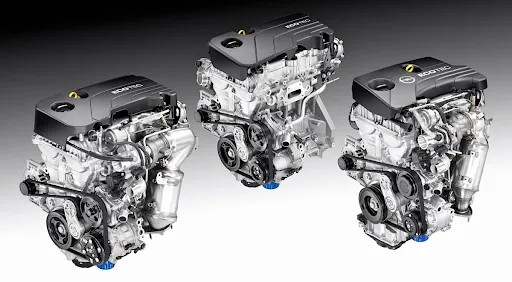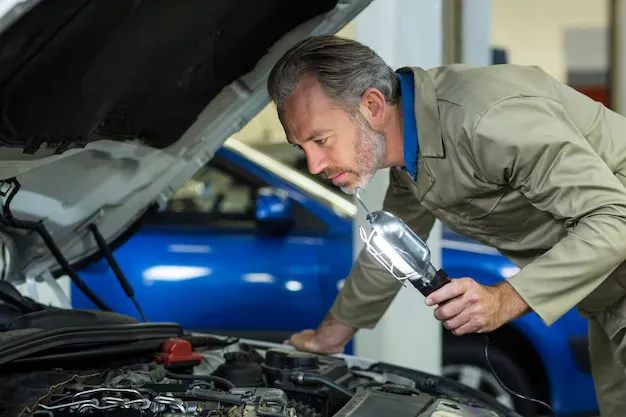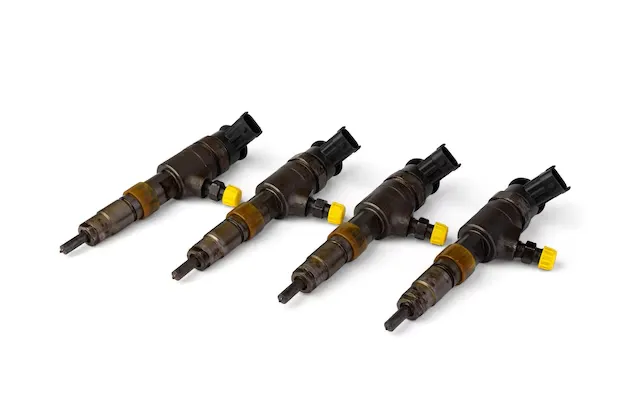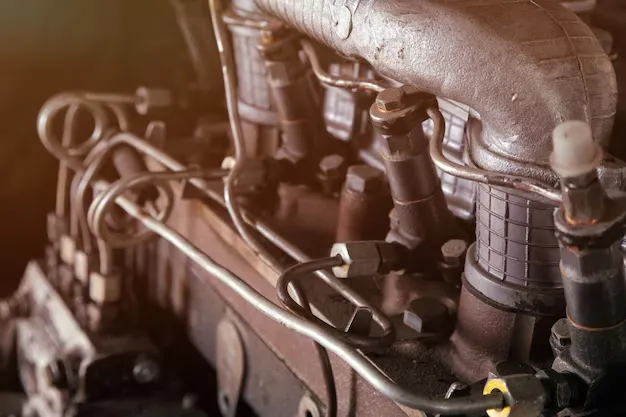Mon - Fri: 8am - 5pm, Sat - Sun: Closed

6-36 Month Warranties
We Ship Local.
Hablamos Español.
Connect with
Common Diesel Engine Problems and Solutions
Common Diesel Engine Problems
Introduction
Diesel engines are celebrated for their durability and fuel efficiency, making them ideal for commercial and personal vehicles. However, they can experience specific issues that impact performance and reliability over time. Common problems include fuel injector clogs, turbocharger failure, and excessive carbon buildup. These issues often stem from poor maintenance, low-quality fuel, or extended idling, which can compromise the engine's efficiency and lifespan.
Understanding these problems and their causes is key to preserving engine longevity. Regular maintenance, including timely oil changes and fuel system cleanings, can prevent major issues. Monitoring engine performance and addressing warning signs early, such as reduced power or unusual noises, ensures your diesel engine continues to deliver optimal reliability and efficiency.



Keeping a close eye on engine performance and promptly addressing warning signs like reduced power, excessive smoke, or unusual noises is essential for maintaining diesel engine reliability. Early detection of issues allows for timely repairs, preventing minor problems from escalating into costly damage. Routine checks of key components, such as the fuel system and turbocharger, help ensure the engine operates efficiently. By staying proactive with maintenance and addressing concerns as they arise, diesel engines can deliver long-lasting performance and dependability for both personal and commercial use.
Injector Failure

Fuel injectors are critical for delivering the precise amount of fuel into the combustion chamber, ensuring optimal engine performance and efficiency. When injectors malfunction, they can cause rough idling, decreased fuel economy, and excessive exhaust smoke. Common causes include fuel contamination, clogging, or wear and tear from prolonged use. Left unaddressed, injector issues can lead to reduced engine performance and increased emissions.
Timely repair of faulty injectors is essential to maintain engine health. Depending on the severity of the issue, solutions may include cleaning the injectors or replacing them entirely. Regular maintenance, such as periodic injector cleaning and using high-quality fuel, can help prevent these problems. Taking proactive steps to protect the fuel system ensures long-lasting engine performance and minimizes the risk of costly repairs.
Turbochargers boost engine power by increasing airflow into the combustion chamber but can encounter issues affecting performance. Common signs of turbocharger problems include reduced power, excessive exhaust smoke, and unusual whining noises. These issues are often caused by oil contamination, foreign object damage, or wear over time. Repair options depend on the extent of the damage, ranging from cleaning or repairing the turbocharger to replacing it entirely. Regular oil changes and using high-quality oil are essential for maintaining turbocharger efficiency and extending its lifespan.
Excessive Blow-By
Blow-by occurs when combustion gases bypass the piston rings and enter the crankcase, potentially leading to engine performance issues and long-term damage. While some blow-by is natural in engines, excessive blow-by can cause significant problems if left unchecked. It is crucial to recognize the signs early to prevent costly repairs and ensure the engine's longevity.
Excessive blow-by manifests through several symptoms, such as noticeable oil leaks, increased oil consumption, and smoke emitted from the crankcase breather. Drivers may also notice reduced engine efficiency and power. The primary causes include worn or damaged piston rings, which fail to seal the combustion chamber effectively, or glazed cylinder walls that reduce the friction necessary for optimal sealing.
Repairing excessive blow-by typically involves mechanical interventions. Mechanics may need to replace worn piston rings, which restore the seal between the piston and cylinder walls, or hone the cylinder walls to remove glazing and restore proper sealing conditions. In some cases, a complete engine rebuild may be necessary if the damage is extensive. Addressing blow-by promptly can help mitigate further engine damage and restore optimal performance.
Preventing blow-by begins with regular maintenance and adhering to proper engine break-in procedures for new or rebuilt engines. High-quality engine oil and timely oil changes play a crucial role in maintaining piston and cylinder health. Additionally, avoiding extended idling and over-revving the engine can help reduce wear on critical components. By prioritizing proactive maintenance, vehicle owners can significantly reduce the risk of excessive blow-by and extend their engine's lifespan. Recognizing and addressing blow-by early is essential for maintaining engine reliability. With proper care and timely interventions, most blow-by-related issues can be effectively managed, ensuring the longevity and efficiency of the engine.
Role of Remanufactured Diesel Engines
Remanufactured diesel engines are an excellent choice for those seeking a cost-effective alternative to new engines. These engines are meticulously rebuilt to meet or exceed the original manufacturer’s specifications. During the remanufacturing process, worn components are replaced, and critical parts are updated to the latest standards, addressing common weaknesses found in the original designs. This results in enhanced reliability, improved performance, and often better fuel efficiency compared to the older versions of the engine.
While remanufactured engines offer significant benefits, choosing the right provider is essential. It is crucial to ensure the engine comes from a reputable supplier who adheres to strict quality control standards. A solid warranty is a key indicator of the engine’s quality and the supplier’s confidence in their product. Additionally, verify that the remanufactured engine uses genuine components and undergoes thorough testing for durability and performance. With careful selection, remanufactured diesel engines can provide a reliable and long-lasting solution, making them an ideal choice for both cost-conscious and performance-focused buyers.

Preventative Maintenance Tips
Proper maintenance is critical for preventing expensive repairs and ensuring that your diesel engine operates efficiently. Regular care not only extends the engine's lifespan but also helps maintain consistent performance. By adhering to a maintenance schedule and addressing issues early, you can avoid costly downtime and improve reliability.
Oil changes are fundamental to diesel engine health. Using the manufacturer-recommended oil and following suggested intervals is key to reducing internal wear. Fresh oil provides optimal lubrication, minimizes friction, and helps remove contaminants that can accumulate over time. Staying on top of oil changes prevents premature engine wear and ensures smooth operation.
Maintaining the fuel system is crucial for engine efficiency. Regularly replacing fuel filters prevents blockages and protects injectors from damage caused by contaminants. Using high-quality diesel fuel further reduces the risk of clogging and injector failure. Similarly, the cooling system requires routine checks. Monitoring coolant levels and inspecting hoses for wear or leaks helps prevent overheating, which can lead to significant engine damage.
Air filters are vital for maintaining proper air-fuel mixtures, ensuring efficient combustion, and reducing engine strain. Replace air filters as needed to prevent dirt and debris from compromising performance. Clogged air filters can reduce fuel efficiency and increase emissions, leading to avoidable expenses. Clean filters also help protect critical engine components from premature wear. Contact us for Regular maintenance inspections to help detect and address small issues before they escalate into major problems, allowing diesel engines to deliver reliable performance and longevity. Proactive care is the best way to keep your engine running smoothly for years to come.
Get our latest news and promos
QUALITY ASSURED


SATISFACTION GUARANTEED

UNPARALLELED SUPPORT
Houston Engines
Proud Member



Social Media
Payments Accepted
Ship Via











